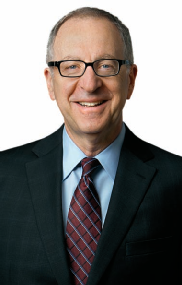As we prepare to transition from the Board of Trustees leadership of Pete Meinig '61, BME '62, to that of Bob Harrison '76, we look forward to Cornell's sesquicentennial in 2015. As I shared with those of you who visited campus for Reunion Weekend, we will maintain a sharp focus on four areas that have been important to Cornell's historic leadership and remain critical to our future.
First, we have long been the prototypical opportunity university, making good on Ezra Cornell's promise of "any person, any study." Even in the darkest days of the Great Recession, we maintained our policy of need-blind admissions and need-based undergraduate financial aid. Going forward, we will keep Cornell within reach—not only for undergraduates, but also for graduate and professional students, and for international students, who, especially as undergraduates, have only limited access to financial aid.
 Second, we will set the standard for globalization of higher education, sharing our knowledge and tapping the insights of the best minds the world over. We have a strong record internationally, from Weill Cornell Medical College in Qatar to such projects as our leadership of international efforts to confer durable rust resistance in wheat. But the world is changing rapidly, and Cornell must change with it. "Problems without passports," such as climate change, infectious diseases, nuclear proliferation, trade regulation, and many others, require international collaboration, and all of us need the skills to live and work effectively across cultures and national borders.
Second, we will set the standard for globalization of higher education, sharing our knowledge and tapping the insights of the best minds the world over. We have a strong record internationally, from Weill Cornell Medical College in Qatar to such projects as our leadership of international efforts to confer durable rust resistance in wheat. But the world is changing rapidly, and Cornell must change with it. "Problems without passports," such as climate change, infectious diseases, nuclear proliferation, trade regulation, and many others, require international collaboration, and all of us need the skills to live and work effectively across cultures and national borders.
Third, we will step up to the challenge of public engagement, bringing the talents of our faculty, students, and staff, and of our research and outreach, to the greater society as never before. Our strategic plan includes among its goals making public engagement a distinctive feature of a Cornell education and strongly connecting it to our on-campus research and educational strengths.
One significant way in which we seek to increase our public engagement is by partnering with the city of New York to build a visionary applied sciences and technology campus in Manhattan. The competition is stiff, but with Cornell's leadership in interdisciplinary information-age education and research, our culture of entrepreneurship, and our strong presence in and commitment to New York City, we are confident that we are the right choice— and that by undertaking this venture we will accelerate Cornell's economic impact on our state, our nation, and our world.
And fourth, we will renew our faculty within each of the basic academic groupings. We have made substantial progress, hiring sixty-three new faculty members for the Ithaca campus so far in the 2011-12 academic year. We will keep the momentum going as we approach the sesquicentennial, because faculty renewal is absolutely crucial to Cornell's future. We are enhancing the faculty ranks in all areas, with a special focus on the humanities and a growing concentration on sustainability.
As I've mentioned before, thanks to masterful management by Provost Kent Fuchs in Ithaca and Provost for Medical Affairs Tony Gotto at Weill Cornell Medical College, we are on track to a balanced, sustainable budget with the resources to recruit many new faculty, stabilize our staff work-force, and continue our commitment to need-based student financial aid. We need to balance growth in faculty numbers and new initiatives with discipline in cost containment, to slow the rise that sooner or later must be reflected in the price of a Cornell education. Yet we must also ensure that Cornell's excellence, influence, and contributions are shared widely—in our local community, within New York State, nationally, and globally.
Along with good management and the sage guidance of our trustees and overseers, it is the contributions of our alumni, parents, and friends that have helped us weather the financial storm. Building on our success so far—with $3.4 billion already raised—and with excitement about our sesquicentennial starting to build, we are extending the university-wide campaign until December 31, 2015, and increasing our goal to $4.75 billion.
Our alumni have been extraordinarily generous over the decades. With your continued help, Cornell will reach new heights as a world-class, comprehensive, sustainable university with global impact, reach, and significance as we celebrate our sesquicentennial. And the time to begin the next phase of our collective future is now.
— President David Skorton
david.skorton@cornell.edu


